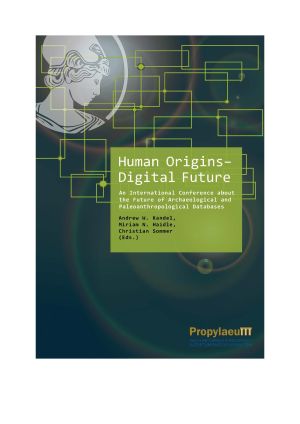
How to Cite
License

This work is licensed under a Creative Commons Attribution-ShareAlike 4.0 International License.
Published
Downloads
Human Origins – Digital Future
An International Conference about the Future of Archaeological and Paleoanthropological Databases
This eBook presents the proceedings of an online conference entitled, “Human Origins – Digital Future” which took place from 27-31 July 2020. The main aim of the conference was to discuss integrative aspects and approaches for developing, using and securing large scientific databases in the future, specifically in the context of archaeological and paleoanthropological research. The conference focused on how databases with novel information technology can be used to gain new knowledge by linking, retrieving and analyzing archaeological, paleoanthropological, paleobiological and geographical information. In addition to addressing fundamental questions of digitalization and open science, the conference examined approaches using innovative methods. Given the digital nature of the conference, we designed the format of this publication to employ multimedia and interactive features. Therefore, this volume brings together the abstracts of the talks, each containing a link that allows the reader to view the video as presented at the conference. In addition, the volume closes with a round-table discussion that can be accessed through links to interviews about selected topics related to the future of databases.






